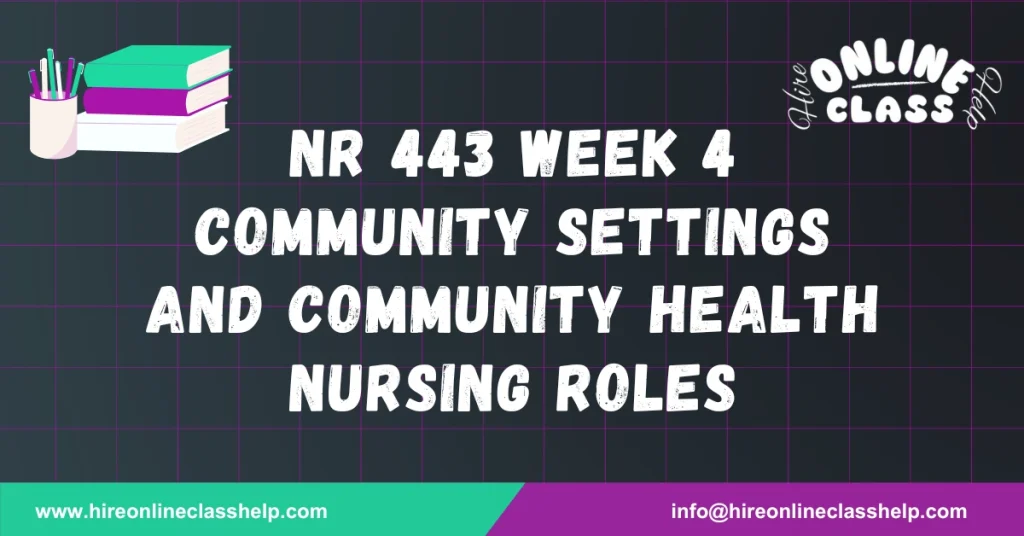






Name
Chamberlain University
NR-443 RN Community Health Nursing
Prof. Name
Date
Home health nursing serves a crucial purpose in modern healthcare by enabling individuals to receive essential medical services in the comfort of their homes, as opposed to a traditional healthcare institution like a hospital (Nies, 2019). These dedicated professionals not only support patients but also play a pivotal role in educating family members, ensuring that loved ones receive appropriate care. This article explores the significant impact of home health nurses in community settings, particularly in areas such as the South Bronx, NY.
Home health nurses are integral to community health, providing care to various populations, including the elderly, postpartum women, and individuals with chronic illnesses like HIV. In my community, the South Bronx, home health nurses are employed in diverse settings, helping families remain together and healthy in their homes. They assist patients transitioning from hospital care to home care, offering vital education and resources.
The South Bronx is characterized by a diverse population primarily composed of minorities, including African Americans and Hispanics. This urban area encompasses a wide range of socioeconomic backgrounds, from working-class families to those relying on public assistance, such as Medicaid and Medicare. Fortunately, the community is served by numerous hospitals and clinics providing primary, secondary, and tertiary care. Additionally, mobile health units frequently conduct screenings for conditions ranging from glucose levels to sexually transmitted infections.
In the South Bronx, a variety of agencies, including private home care providers, the Department of Health, and hospital-affiliated services, offer comprehensive home health care. Since many residents depend on Medicaid or Medicare, the New York City Health and Hospital Corporation delivers vital services tailored to meet the needs of this population. Home health care addresses numerous health issues prevalent in the Bronx, particularly through programs like the Nurse-Family Partnership, which provides essential home visits for low-income pregnant women.
Maternal home health nurses play a critical role in supporting new mothers by providing health education and helping them prepare for their newborns. These nurses offer guidance on prenatal care, breastfeeding, and connecting mothers to community resources, such as Women, Infants, and Children (WIC) programs. The support lasts for two years, covering the pregnancy period and the child’s first year.
Maternal home health nurses assess the home environment and the mental health of expectant mothers. They identify necessary resources and provide nursing care that includes monitoring the baby’s development, offering emotional support, and guiding parents through the challenges of new parenthood. Their involvement ensures that mothers feel supported and empowered, addressing not just physical health but also emotional well-being.
The role of maternal home health nurses extends beyond immediate care; they focus on empowering families with knowledge. They offer parenting education, such as advice on bathing and feeding, child development, and practical assistance with housing issues and caring for sick children (Buggey, 2007). This comprehensive approach to health promotion significantly improves maternal and child health outcomes in the community.
Organizations like the Association of Maternal & Child Health Programs advocate for women’s health and well-being. Their mission is to ensure that low-income families receive the same level of care and resources as those from more affluent backgrounds. Home health nurses act as vital advocates for these families, bridging gaps in healthcare access and promoting equitable health education.
Home health nursing is a cornerstone of community health, particularly for pregnant women and new mothers. By providing education and support, these nurses significantly influence maternal and fetal health outcomes. Their services ensure that mothers are well-prepared for childbirth and equipped with the knowledge needed to care for their infants, ultimately fostering healthier families and communities.
In summary, the dedication of home health nurses not only helps families remain together but also enhances the quality of care they receive, significantly contributing to the overall health of the community.